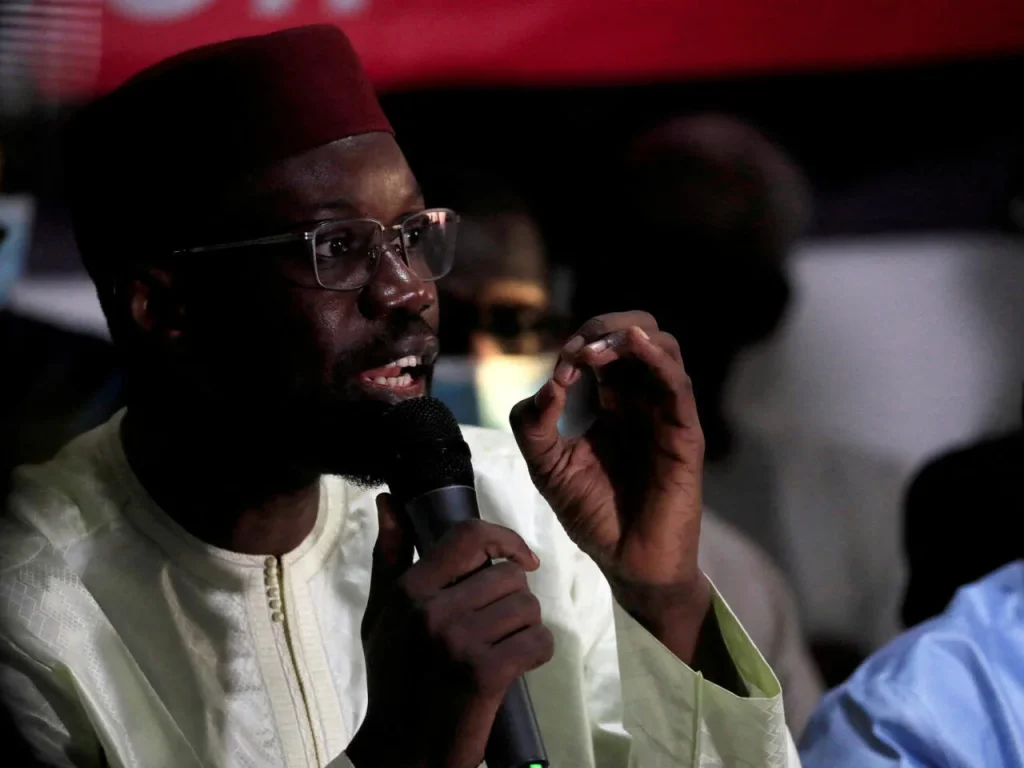A Senegalese judge has mandated that Ousmane Sonko, a prominent opposition leader, stand trial for alleged rape and death threats, intensifying a legal saga that could jeopardize his presidential ambitions for 2024. The ruling, confirmed by lawyers representing both Sonko and his accuser, underscores the high stakes in Senegal’s political arena as the nation gears up for its next election.
A Rising Star Under Scrutiny
Ousmane Sonko, a 48-year-old former tax inspector, has emerged as a formidable figure in Senegalese politics, particularly among younger voters. His third-place finish in the 2019 presidential election highlighted his growing influence, fueled by his vocal criticism of corruption, social elitism, and foreign influence, notably from Senegal’s former colonial power, France. Sonko has declared his candidacy for the 2024 presidential race, but his legal troubles threaten to derail his campaign.
The allegations stem from a complaint by a beauty salon employee who accused Sonko of rape and issuing death threats, charges filed in 2021. Sonko denies the accusations, asserting they are part of a political conspiracy orchestrated by President Macky Sall to undermine his candidacy. The judge’s recent order to move the case to a criminal court has escalated the controversy, placing Sonko’s political future in question.
Legal and Political Tensions
The plaintiff’s lawyer, El Hadji Diouf, expressed approval of the judicial decision, stating that it stood firm against “lies and manipulation” from Sonko’s supporters. Diouf emphasized the accuser’s satisfaction with the trial order, viewing it as a step toward justice despite public pressure. Conversely, Sonko’s legal team, led by Cheik Khoureyssi Ba, confirmed their intent to appeal, noting that the order is subject to legal challenge. Sonko’s camp maintains that the case is a calculated effort to sabotage his 2024 presidential bid.
Sonko’s rhetoric, often described as populist by critics, resonates with those frustrated by Senegal’s political and economic establishment. His calls for greater national sovereignty and critiques of multinational corporations have galvanized support, particularly among urban youth. However, his 2021 indictment sparked violent protests that left around a dozen people dead, highlighting the polarizing impact of his political rise.
Senegal’s Political Landscape
Senegal enjoys a reputation for stability in a region often marked by political upheaval. Yet, Sonko’s case reflects broader tensions, as several other opposition figures have faced legal challenges that curtailed their political careers. Authorities have denied allegations of judicial misuse, insisting that Sonko’s case is a legitimate legal matter. Nevertheless, the timing of the trial order fuels speculation about political motivations, especially given Sonko’s growing popularity and the upcoming 2024 election.
The trial’s outcome could significantly affect Sonko’s eligibility to run for president, potentially reshaping Senegal’s political dynamics. A conviction might disqualify him, galvanizing his supporters and risking further unrest. Conversely, a successful appeal could bolster his campaign, positioning him as a victim of political persecution.
Looking Ahead to 2024
As Senegal approaches its 2024 presidential election, Sonko’s legal battle remains a focal point of national discourse. His ability to navigate these challenges will determine whether he can maintain his momentum as a leading opposition voice. The case also tests Senegal’s judicial independence and its commitment to democratic principles in a region where political stability is often fragile.
For now, Sonko’s supporters continue to rally behind him, viewing the trial as an attempt to silence a transformative figure. The resolution of this case will likely have far-reaching implications for Senegal’s political future, shaping public trust and the nation’s democratic trajectory.






